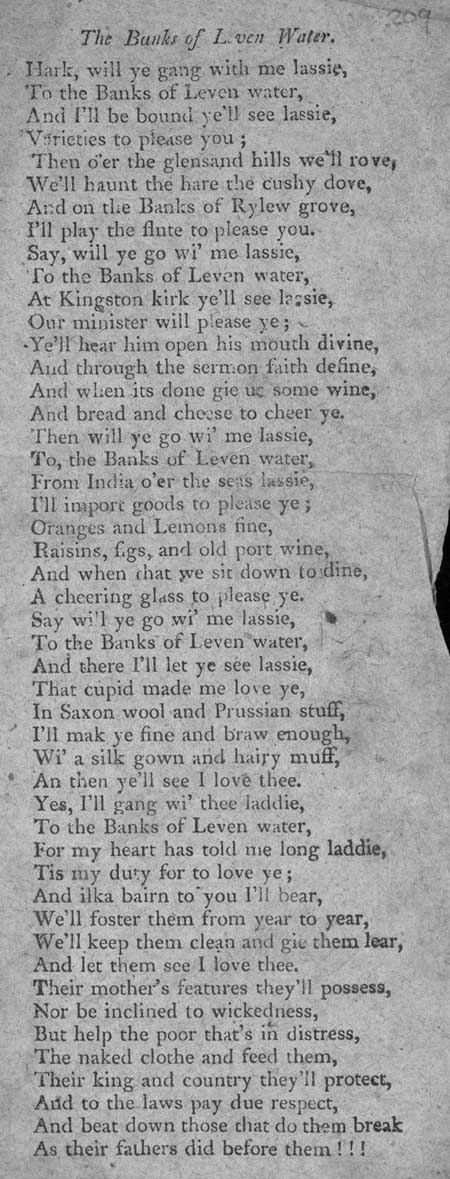Commentary
This ballad begins: 'Hark, will ye gang with me lassie, / To the Banks of Leven water, / And I'll be bound ye'll see lassie, / Varieties to please; Then o'er the glens and hills we'll rove, / We'll haunt the hare the cushy dove, / And on the Banks of Rylew grove, / I'll play the flute to please you.' The broadside does not carry the name of its publisher, nor the place or date of publication. Initially this appears to be a conventional love song, featuring a young man asking his sweetheart to walk with him in beautiful countryside. However, as the song develops, it describes an industrialised Leven valley, rich in overseas trade but also marked by poverty. The idea for a contemporary realist love song about the area may have been formed in reaction to Tobias Smollett's (1721-71) 'To Leven Water', which is a far more traditional and picturesque romantic ballad. The River Leven, which flows from Loch Lomond into the Clyde, encompasses both scenic rural and urban industrial aspects of west central Scotland. Early ballads were dramatic or humorous narrative songs derived from folk culture that predated printing. Originally perpetuated by word of mouth, many ballads survive because they were recorded on broadsides. Musical notation was rarely printed, as tunes were usually established favourites. The term 'ballad' eventually applied more broadly to any kind of topical or popular verse.
View Transcription | Download PDF Facsimile
|
 |
Probable period of publication:
1830-1850 shelfmark: L.C.Fol.178.A.2(209)
 View larger image
View larger image
|


